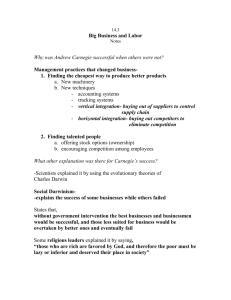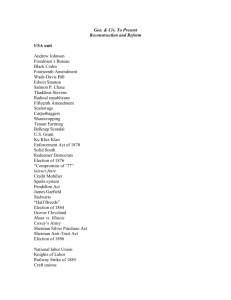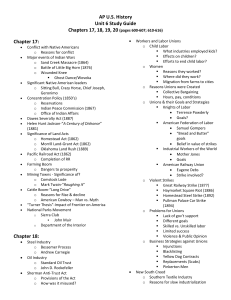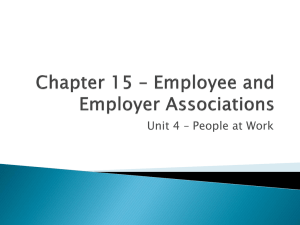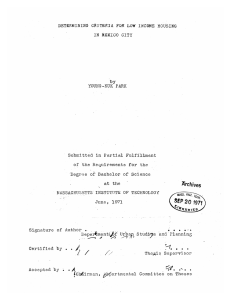Lazaro Cardenas - Mrs. Lee's History Place
advertisement
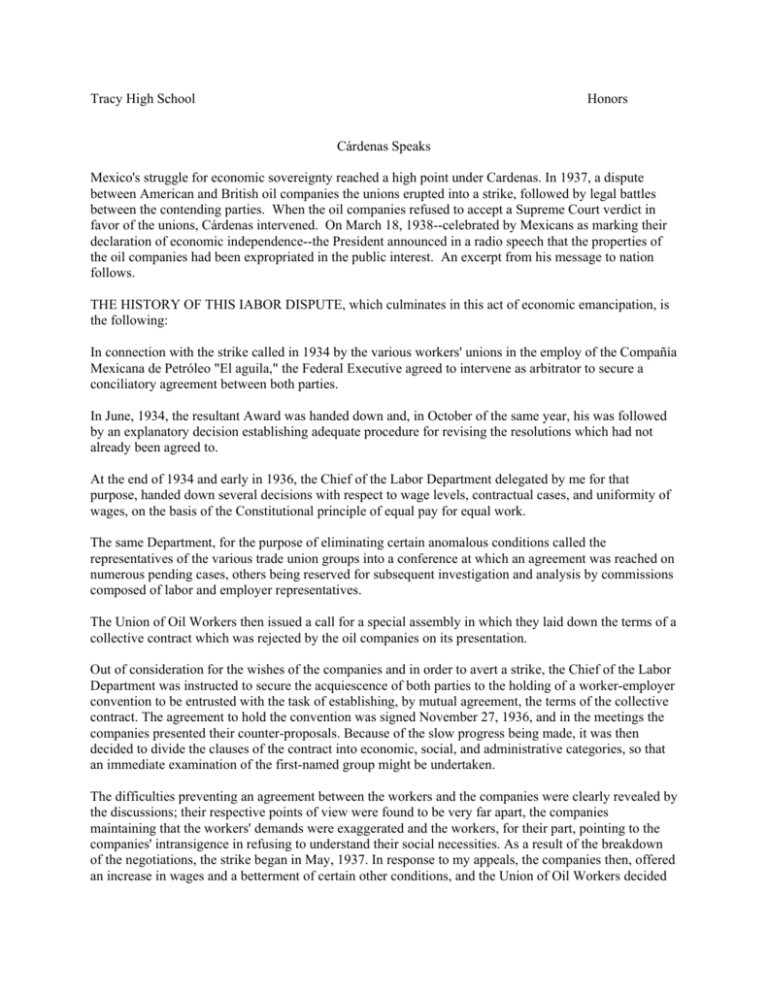
Tracy High School Honors Cárdenas Speaks Mexico's struggle for economic sovereignty reached a high point under Cardenas. In 1937, a dispute between American and British oil companies the unions erupted into a strike, followed by legal battles between the contending parties. When the oil companies refused to accept a Supreme Court verdict in favor of the unions, Cárdenas intervened. On March 18, 1938--celebrated by Mexicans as marking their declaration of economic independence--the President announced in a radio speech that the properties of the oil companies had been expropriated in the public interest. An excerpt from his message to nation follows. THE HISTORY OF THIS IABOR DISPUTE, which culminates in this act of economic emancipation, is the following: In connection with the strike called in 1934 by the various workers' unions in the employ of the Compañía Mexicana de Petróleo "El aguila," the Federal Executive agreed to intervene as arbitrator to secure a conciliatory agreement between both parties. In June, 1934, the resultant Award was handed down and, in October of the same year, his was followed by an explanatory decision establishing adequate procedure for revising the resolutions which had not already been agreed to. At the end of 1934 and early in 1936, the Chief of the Labor Department delegated by me for that purpose, handed down several decisions with respect to wage levels, contractual cases, and uniformity of wages, on the basis of the Constitutional principle of equal pay for equal work. The same Department, for the purpose of eliminating certain anomalous conditions called the representatives of the various trade union groups into a conference at which an agreement was reached on numerous pending cases, others being reserved for subsequent investigation and analysis by commissions composed of labor and employer representatives. The Union of Oil Workers then issued a call for a special assembly in which they laid down the terms of a collective contract which was rejected by the oil companies on its presentation. Out of consideration for the wishes of the companies and in order to avert a strike, the Chief of the Labor Department was instructed to secure the acquiescence of both parties to the holding of a worker-employer convention to be entrusted with the task of establishing, by mutual agreement, the terms of the collective contract. The agreement to hold the convention was signed November 27, 1936, and in the meetings the companies presented their counter-proposals. Because of the slow progress being made, it was then decided to divide the clauses of the contract into economic, social, and administrative categories, so that an immediate examination of the first-named group might be undertaken. The difficulties preventing an agreement between the workers and the companies were clearly revealed by the discussions; their respective points of view were found to be very far apart, the companies maintaining that the workers' demands were exaggerated and the workers, for their part, pointing to the companies' intransigence in refusing to understand their social necessities. As a result of the breakdown of the negotiations, the strike began in May, 1937. In response to my appeals, the companies then, offered an increase in wages and a betterment of certain other conditions, and the Union of Oil Workers decided to resume work on June 9th, at the same time bringing an economic action against the companies before the Board of Conciliation and Arbitration. As a result of these events, the Board of Conciliation and Arbitration took jurisdiction in the case and, in accordance with the provisions of the law, a commission of experts, composed of persons of high moral standing and adequate preparation was designated by the President of the Board. The commission's report found that the companies could afford to meet the disbursements recommended in it, namely, an annual increase of 26,332,756 pesos, as against the offer made by the seventeen oil companies at the time of the strike in May, 1937. The experts specifically stated that the conditions recommended in the report would be totally satisfied with the expenditure of the sum stipulated, but the companies argued that the amount recommended was excessive and might signify an even greater expenditure, which they estimated at a total of 41,000,000 pesos. In view of these developments, the Executive then suggested the possibility of an agreement between representatives of the Union of Oil Workers and the companies, duly authorized to deal with the dispute, but this solution proved impossible because of the refusal of the companies. Notwithstanding the failure of this effort, the Public Power, still desirous of securing an extra-judicial agreement between the parties at issue, instructed the Labor Authorities to inform the companies of its willingness to intervene with the purpose of persuading the Labor Unions to accept the interpretations necessary to clarify certain obscure points of the Award which might later lend themselves to misunderstandings, and to assure the companies that in no case would the disbursements ordered by the Award be allowed to exceed the above-mentioned sum of 26,332,756 pesos; but in spite of this direct intervention of the Executive, it was impossible to obtain the results sought. In each and every one of the various attempts of the Executive to arrive at a final solution of the conflict within conciliatory limits, and which include the periods prior to and following the amparo action which has produced the present situation, the intransigence of the companies was clearly demonstrated. Their attitude was therefore premeditated and their position deliberately taken, so that the Government, in defense of its own dignity, had to resort to application of the Expropriation Act, as there were no means less drastic or decision less severe that might bring about a solution of the problem. For additional justification of the measure herein announced, let us trace briefly the history of the oil companies' growth in Mexico and of the resources with which they have developed their activities. It has been repeated ad nauseam that the oil industry has brought additional capital for the development and progress of the country. This assertion is an exaggeration. For many years, throughout the major period of their existence, the oil companies have enjoyed great privileges for development and expansion, including customs and tax exemptions and innumerable prerogatives; it is these factors of special privilege, together with the prodigious productivity of the oil deposits granted them by the Nation often against public will and law, that represent almost the total amount of this so-called capital. Potential wealth of the Nation; miserably underpaid native labor; tax exemptions; economic privileges; governmental tolerance — these are the factors of the boom of the Mexican oil industry. Let us now examine the social contributions of the companies. In how many of the villages bordering on the oil fields is there a hospital, or school or social center, or a sanitary water supply, or an athletic field, or even an electric plant fed by the millions of cubic meters of natural gas allowed to go to waste? What center of oil production, on the other hand, does not have its company police force for the protection of private, selfish, and often illegal interests? These organizations, whether authorized by the Government or not, are charged with innumerable outrages, abuses, and murders, always on behalf of the companies that employ them. Who is not aware of the irritating discrimination governing construction of the company camps? Comfort for the foreign personnel; misery, drabness, and insalubrity for the Mexicans. Refrigeration and protection against tropical insects for the former; indifference and neglect, medical service and supplies always grudgingly provided, for the latter; lower wages and harder, more exhausting labor for our people. The tolerance which the companies have abused was born, it is true, in the shadow of the ignorance, betrayals, and weakness of the country's rulers; but the mechanism was set in motion by investors lacking in the necessary moral resources to give something in exchange for the wealth they have been exploiting. Another inevitable consequence of the presence of the oil companies, strongly characterized by their antisocial tendencies, and even more harmful than all those already mentioned, has been their persistent and improper intervention in national affairs. The oil companies' support to strong rebel factions against the constituted government in the Huasteca region of Veracruz and in the Isthmus of Tehuantepec during the years 1917 to 1920 is no longer a matter for discussion by anyone. Nor is anyone ignorant of the fact that in later periods and even at the present time, the oil companies have almost openly encouraged the ambitions of elements discontented with the country's government, every time their interests were affected either by taxation or by the modification of their privileges or the withdrawal of die customary tolerance. They have had money, arms, and munitions for rebellion, money for the anti-patriotic press which defends them, money with which to enrich their unconditional defenders. But for the progress of the country, for establishing an economic equilibrium with their workers through a just compensation of labor, for maintaining hygienic conditions in the districts where they themselves operate, or for conserving the vast rides of the natural petroleum gases from destruction, they have neither money, nor financial possibilities, nor the desire to subtract the necessary funds from the volume of their profits. Nor is there money with which to meet a responsibility imposed upon them by judicial verdict, for they rely on their pride and their economic power to shield them from the dignity and sovereignty of a Nation, which has generously placed in their hands its vast mural resources and now finds itself unable to obtain the satisfaction of the most elemental obligations by ordinary legal means. As a logical consequence of this brief analysis, it was therefore necessary to adopt a definite and legal measure to end this permanent state of affairs in which the country sees industrial progress held back, by chose who holding their hands the power to erect obstacles as well as the motive power of all activity and who. instead of using it to high and worthy purpose abuse their economic strength to the point a jeopardizing the very life of a Nation endearing to bring about the elevation of its people through its own laws, its own resources, and the free management of its own destinies. With the only solution to this problem thus placed before it, I ask the entire Nation for moral and material support sufficient to carry out so justified, important, and indispensable a decision. The Government has already taken suitable steps to maintain the constructive activities now going forward throughout the Republic, and for that purpose it asks the people only for its full confidence and backing in whatever dispositions the Government may be obliged to adopt. Nevertheless, we shall, if necessary, sacrifice all the constructive projects on which the Nation has embarked during the term of this Administration in order to cope with the financial obligations imposed upon us by the application of the Expropriation Act to such vast interest: and although the subsoil of the county will give us considerable economic resources with which to meet the obligation of indemnification which we have contracted, we must be prepared for the possibility of our individual economy also suffering the indispensable readjustments, even to the point, should the Bank of Mexico deem it necessary, of modifying the present exchange rate of our currency, so that the whole country may be able to count on sufficient currency and resources with which to consolidate this act of profound and essential economic liberation of Mexico. It is necessary that all groups of the population be imbued with a full optimism and that each citizen, whether in agricultural, industrial, commercial, transportation, or other pursuits, develop a greater activity from this moment on, in order to create new resources which will reveal that the spirit of our people is capable of saving the nation's economy by the efforts of its own citizens. And, finally, as the fear may arise among the interests now in bitter conflict in the field of international affairs that a deviation of raw materials fundamentally necessary to the struggle in which the most powerful nations are engaged might result from the consummation of this act of national sovereignty and dignity, we wish to state that our petroleum operations will not depart a single inch from the moral solidarity maintained by Mexico with the democratic nations, whom we wish to assure that the expropriation now decreed has as its only purpose the elimination of obstacles erected by groups who do not understand the evolutionary needs of all peoples and who would themselves have no compunction in selling Mexican oil to the highest bidder, without taking into account the consequences of such action to the popular masses and the nations in conflict. Mexico's Oil, México, 1940, pp. 878-879.

